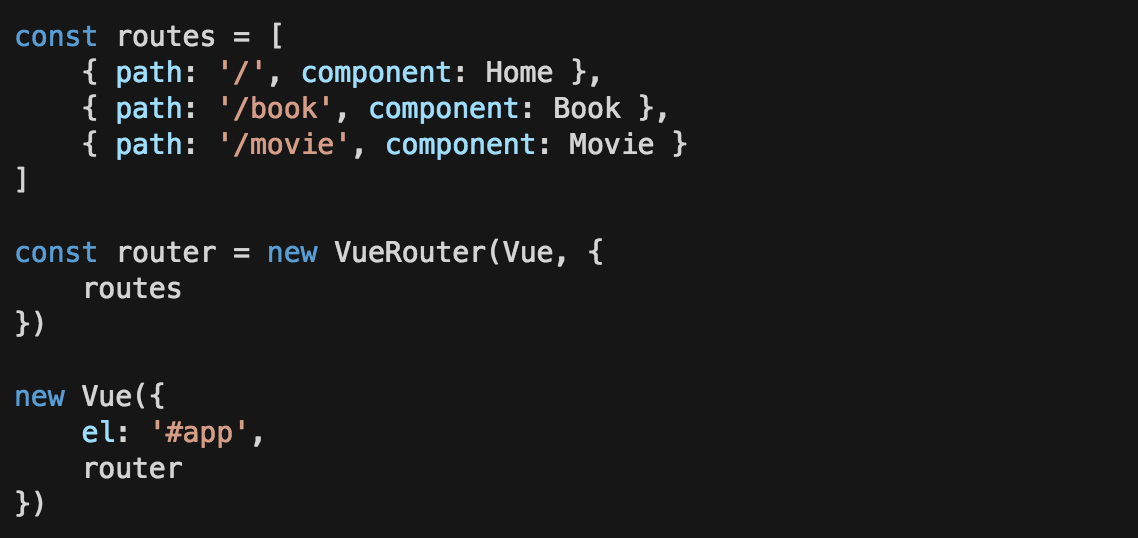项目中使用vue-router的时候,会进行以下操作(可能具体不是这么写的,但是原理一样):
- 定义映射关系routes;
- 定义router实例的时候传入vue和参数{routes...};
- 定义vue实例的时候,把router挂载到vue实例上。

接下来看我们写一个极简版的router源码。
class VueRouter { constructor(Vue, options) { this.$options = options this.routeMap = {} this.app = new Vue({ data: { current: '#/' } }) this.init() this.createRouteMap(this.$options) this.initComponent(Vue) } // 初始化 hashchange init() { window.addEventListener('load', this.onHashChange.bind(this), false) window.addEventListener('hashchange', this.onHashChange.bind(this), false) } createRouteMap(options) { options.routes.forEach(item => { this.routeMap[item.path] = item.component }) } // 注册组件 initComponent(Vue) { Vue.component('router-link', { props: { to: String }, template: '<a :href="to"><slot></slot></a>' }) const _this = this Vue.component('router-view', { render(h) { var component = _this.routeMap[_this.app.current] return h(component) } }) } // 获取当前 hash 串 getHash() { return window.location.hash.slice(1) || '/' } // 设置当前路径 onHashChange() { this.app.current = this.getHash() } }
constructor里接受参数option并作为成员属性保存下来。定义routeMap用来保存路由和组件的map结构。定义vue的实例app让current动态化。
初始化init()里监听浏览器的load和hashchange事件,当发生load和hashChange事件时触发onHashChange函数,并bind了this为当前路由器的实例。
onHashChange()做的事情是获取地址栏里的地址赋值给current。
createRouteMap()遍历传进来的options,生成routeMap
initComponent()初始化router的组件<router-link/>,<router-view/>,把router-link渲染成一个a标签,<router-view> 用render函数渲染 则根据current和routeMap渲染当前路由对应的组件。